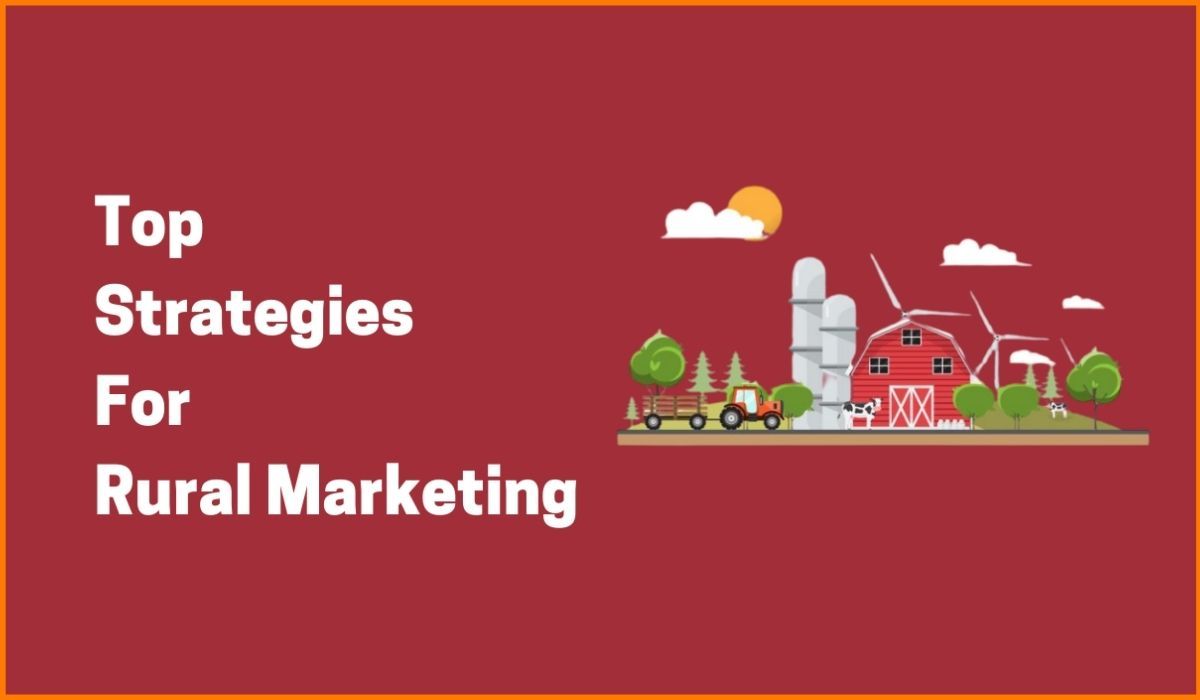Company Profile is an initiative by StartupTalky to publish verified information on different startups and organizations.
Online grocery shopping is fast gaining popularity among Indians. According to a Redseer report, India’s online grocery retail market is all set to touch $10.5 billion by 2023. A company that holds a huge share of this fast-growing market is BigBasket.
Founded in 2011 by the dot-com bubble survivors V.S. Sudhakar, Hari Menon, V.S. Ramesh, Vipul Parekh, and Abhinay Choudhari, Supermarket Grocery Supplies Pvt. Ltd., trading as BigBasket, became a household name soon after it came into existence.
Headquartered in Bengaluru, BigBasket is currently known as one of India’s largest online grocers and offers an impressive selection of products from over 1,000 brands, delighting over 6 million satisfied customers.
In May 2021, Tata Group became the BigBasket’s owner by acquiring a majority stake of 64% in the company. Tata Sons has acquired a majority stake in BigBasket, putting the Indian conglomerate in a direct race with e-commerce players Amazon, Walmart, Flipkart, and Reliance Industries. The stake was bought by Tata Digital Limited, a unit of Tata Sons.
In this article, you can find detailed information about BigBasket, including the company’s founders, history and journey, business model, revenue, funding, acquisitions, and more.
BigBasket Company Details
| Startup Name | BigBasket |
|---|---|
| Headquarter | Bengaluru, Karnataka, India |
| Industry | E-commerce, Grocery, Grocery Delivery |
| Founders | V.S. Sudhakar, Hari Menon, V.S. Ramesh, Vipul Parekh, Abhinay Choudhari |
| Founded | 2011 |
| Valuation | $3.2 billion |
| Parent Company | Tata Group |
| Website | bigbasket.com |
About BigBasket
BigBasket – Founders and Team
BigBasket – Startup Story | How BigBasket Started?
BigBasket – Name, Tagline, and Logo
BigBasket – Business and Revenue Model
BigBasket – Startup Challenges
BigBasket – Funding and Investors
BigBasket – Acquisitions
BigBasket – Growth and Revenue
BigBasket – Partnerships
BigBasket – Awards and Recognitions
BigBasket – Competitors
BigBasket – Future Plans
The Rise of BigBasket

About BigBasket
BigBasket is into delivering everyday cooking essentials like ghee (clarified butter), diced coconut, fragrant basmati rice, and more, amounting to a total of over 40,000 items, along with other household products ranging from bread to laundry detergents for the customers to shop from. The company gets all of them delivered to their doorsteps. The target motive of the company is to enable the ease of grocery shopping online to avoid traffic and the drudgery of supermarket visits.
To explore new opportunities, the company has also launched 3 new businesses – bb Daily, bb Instant, and bbnow.
bb Daily is a subscription-based service that allows customers to order milk and fresh groceries. With this platform, the customers have to place the order before 10 PM, and they eventually get the goods delivered between 5 AM – 7 AM the next day.
bb Instant is BigBasket’s unmanned vending machine that is mostly available in corporate offices, tech parks, and apartment buildings in Tier I cities.
bbnow, the rapid grocery delivery service by BigBasket, allows you to order daily essentials like fruits, vegetables, cooking necessities, and household items and have them delivered to your doorstep within just 15-30 minutes.
BigBasket has also launched Fresho stores, which is currently serving as the first offline retail store of BigBasket that has already been opened at Basaveshwar Nagar in Bangalore. These BigBasket stores are technology-driven, self-service stores for customers.
BigBasket – Founders and Team
BigBasket was founded by V.S. Sudhakar, Hari Menon, V.S. Ramesh, Vipul Parekh, and Abhinay Choudhari in 2011. Prior to BigBasket, the founders also founded Fabmart.com, an online platform that sold books, toys, and groceries in the year 1999. Fabmart was sold to a grocery chain in 2006.

V.S. Sudhakar
BigBasket Co-founder V S Sudhakar was the CEO of Planetasia. He has vast experience working in the IT sector.
Hari Menon
BigBasket CEO Hari Menon comes with vast experience in diverse fields. Prior to Big Basket, Menon was the CEO of Indiaskills, the Vocational Education joint venture of Manipal Group with City & Guilds, UK. An alumnus of BITS Pilani, Hari Menon also worked as the Country Head at Planetasia, one of India’s first Internet services businesses. Hari also held top positions with IT majors like Wipro Infotech.
V.S. Ramesh
V.S. Ramesh is the Head of Logistics & Supply Chain at BigBasket. An Electronics Engineering graduate from Karnataka University, V.S. Ramesh has over 21 years of experience in the Indian Navy handling Operations and Logistics. Ramesh is an Electronics Engineer, who earlier co-founded Fabmall.
Vipul Parekh
Vipul Parekh is the Head of Finance & Marketing at BigBasket. Vipul is an alumnus of IIM Bangalore and worked with a range of companies holding key leadership positions including Wipro Limited and Trinethra Super Retail Ltd. He also worked with Peepul Capital Advisors Pvt Ltd., a leading Private Equity Fund as an Investment Director. Parekh also co-founded Fabmall before co-founding BigBasket.
Abhinay Choudhari
Abhinay Choudhari was the Head of New Initiatives at BigBasket along with being a Co-founder. Abhinay is an IIM Ahmedabad alumnus. Besides working with leading IT companies like iGATE & Infosys, Abhinay also founded Stylecountry.com, one of India’s first online fashion retail stores. Stylecountry.com had to be closed down as it did not turn out to be profitable.
Abhinay Choudhari has taken a silent exit from BigBasket on August 5, 2021. Soon after Tata acquired BigBasket in May 2021, Abhinay decided not to continue working in the same firm, which he finally managed to do in August. As a parting note to his employees, Choudhari has mentioned that he left BigBasket only to build another company from scratch due to “the start-up itch” that has been growing in him for nine years. Choudhari hinted to “solve another equally painful chore for many Indian households” in the form of a new business that he will found. Next, he will be looking forward to an online laundry business, as per reports.
TN Hari, who served as the Chief Human Resources Officer (CHRO) at BigBasket for 7 long years, has let people know that he has decided to do something different via his Linkedin handle. TN Hari, in his career with BB, which has now found a new, safe home with the Tata Group acquisition, has already spent 20 years in the Indian startup ecosystem. During these years, he boasts of wearing many different hats as an Angel Investor, Advisor to other VC Firms, Mentor at Startup Accelerators, Sounding Board to Founders, Author, and Columnist. Hari has also revealed that he has been a part of 5 startups to date, 3 out of which have already turned into unicorns. TN Hari has also been identified by Linkedin as one of the top voices of India for 3 consecutive years. Establishing the Artha School of Entrepreneurship is the new goal of this top executive of BB. The mission of Artha would be to accelerate the “journeys of the entrepreneurs in scaling their ventures and contributing to economic and social prosperity of their communities.”
RainCan, which was originally a daily essential subscription-based startup, later acquired by Big Basket in 2018, was eventually rebranded as BBDaily.
BigBasket currently boasts of being a 5000+ strong company.
BigBasket – Startup Story | How BigBasket Started?
All of this began when the BigBasket founders decided to exploit the experience they got after the massive failure of the dot com bubble. Hence, they decided to create a unique website that was never done before. All the founders of Big Basket had garnered relevant experiences in eCommerce when they created Fabmart.com.
Fabmart.com was an online platform that sold books, toys, and groceries in the year 1999. Back then, only within a few months, they realized that not just our country but the whole world was not ready to take this buzz of digitization. In the year 2006, Fabmart was merged with a brick-and-mortar grocery chain and the founders ended up selling their startup for a lump sum amount.
Then came the golden year of 2011, when the team reunited and started re-evaluating the idea of again coming up with something new and exciting. Despite all the criticism they had received back in 1999, they stood very strong on the fact that the time to do something that’d put them on the map was then. In 2011, the smartphone market was booming and anything and everything was available except groceries, of course, and that right then was their Eureka moment.
BigBasket used to fulfill its orders by purchasing products from Metro Cash and Carry stores, prior to setting up its first warehouse.
“We had people in the Metro stores, literally operating that as our warehouse” says Hari Menon, Co-founder & CEO of BigBasket.
BigBasket – Name, Tagline, and Logo

Supermarket Grocery Supplies Pvt. Ltd., trades as “BigBasket,” the name of which is drawn from the idea of shopping baskets, which the company extends to their customers online.
The recent tagline of the brand reflects “Har Din Sasta.”
BigBasket – Business and Revenue Model
BigBasket’s private label business is driven by lower prices and higher margins. Roughly 35% of the revenue comes from private labels. The aim here is to fill the gap in distinct categories like organic food, and high-end consumer products, to name a few. Also, the company offers a lower price point for staples and fruits and vegetables. They also provide idli/dosa batter on their online platform, which is very rare and does not have a lot of competition.
Moreover, on the B2B side, BigBasket serves its private label to about a thousand Kirana stores, huge corporates, and HoReCa (hotels, restaurants, cafes). Regarding Big Basket’s Business Model, Big Basket follows both the ‘inventory model’ and ‘the hyper-local model’.
Under the inventory model, the company buys products from leading suppliers like P&G, HUL, mills, farmers, etc., stores the products in warehouses, and supplies the same to the customers on order. In the case of perishable goods, BigBasket further has tie-ups with local farmers and suppliers from whom it procures the goods as per orders and supplies the same to the customers.
Under the ‘hyper-local model’, BigBasket has a tie-up with 2000+ grocery stores across India to deliver products within one hour from the neighborhood.
With the opening of its physical store, Fresho, BigBasket is also a step ahead in the physical grocery space, which is soon expected to be a revenue generator for the company.
BigBasket – Startup Challenges
One of the main challenges of any startup in India is getting the customers to try the service first since the resistance level is really high. This is followed by retaining these consumers despite all the other factors in the market like competitors, local vendors, and buying habits, which were there for BigBasket too.
Also, since it was one of a kind startup dealing with groceries, which was never the case before, it took a while for the consumers to place trust in a brand like BigBasket and start using its services.
Data Breach Issues
Online grocery store BigBasket faced a massive data breach in November 2020 as the company had allegedly leaked the data of over 2 crore users on the dark web. BigBasket, funded by Jack Ma-owned Alibaba Group, Mirae Asset-Naver Asia Growth Fund, and CDC group has filed a complaint in this regard with Cyber Crime Cell in Bengaluru.
According to media reports, Cyble, a cyber intelligence firm, informed that the grocery e-commerce platform BigBasket leaked data including names, email IDs, password hashes, contact numbers, addresses, etc, on the dark web. Also, Cyble informed that a hacker had put the data on sale for over Rs 30 lakh.
Reacting to this, BigBasket said: “A few days ago, we learned about a potential data breach at Bigbasket and are evaluating the extent of the breach and authenticity of the claim in consultation with cybersecurity experts and finding immediate ways to contain it. We have also lodged a complaint with the Cyber Crime Cell in Bengaluru and intend to pursue this vigorously to bring the culprits to book.”
Bengaluru-based BigBasket also ensured that the confidentiality and security of customers are their priority and it does not store any financial data (including credit card numbers) etc and is positive that this financial data is secure.
“The only customer data that we maintain are email IDs, phone numbers, order details, and addresses so these are the details that could potentially have been accessed. We have a robust information security framework that employs best-in-class resources and technologies to manage our information. We will continue to proactively engage with best-in-class information security experts to strengthen this further,” the statement by BigBasket read.
Cyble also claimed that the breach may have occurred on October 30, 2020, and it has already informed Bigbasket about it.
pack your stuff and walk out of the store without having to wait in a queue for
payment. India’s first cashier-less store – Watasale opened up by a Kochi-based
startup Nayasale Retail Pvt Ltd in Kochi, Kerala in 2018. You …

BigBasket – Funding and Investors
BigBasket has raised a total of $1.5 billion in funding over 20 rounds. The latest funding for the company was raised on December 21, 2022, when BigBasket raised $200 million from its majority stakeholder, Tata Digital. This funding round raised BigBasker’s valuation to $3.2 billion.
Here are the details of the latest funding raised by Big Basket:
| Date | Stage | Amount | Investors |
|---|---|---|---|
| December 21, 2022 | Venture Round | $200 million | Tata Digital |
| June 2, 2022 | Venture Round | $45 million | Supermarket Grocery Supplies |
| April 13, 2022 | Venture Round | $121 million | Supermarket Grocery Supplies |
| April 15, 2020 | Debt Financing | $51.8 million | Alibaba Group |
| April 9, 2020 | Venture Round | $60 million | Alibaba Group |
| July 2019 | Debt Financing | $14 million | Trifecta Capital |
| May 2019 | Series F | $150 million | Mirae Asset-Naver Asia Growth Fund |
| January 2019 | Venture Round | – | Growth Story |
| February 2018 | Series E | $300 million | Alibaba Group |
| October 25, 2017 | Venture Round | $4.3 million | Helion Ventures Partners |
| October 10, 2017 | Debt Financing | $838.1K | Trifecta Capital Advisors |
| October 1, 2017 | Venture Round | $5 million | Bessemer Venture Partners |
| September 2017 | Series E | $280 million | Alibaba Group, Paytm Mall |
| March 2017 | Debt Financing | $6.9 million | Trifecta Capital Advisors |
| March 2016 | Series D | $150 million | Abraaj Group |
| August 2015 | Series C | $50 million | Bessemer Venture Partners |
| September 2014 | Series B | $33 million | Helion Venture Partners |
| April 2014 | Bridge Round | $3 million | Singapore-based private investor |
| March 2012 | Series A | $10 million | Ascent Capital |
BigBasket – Acquisitions
Big Basket has made 6 acquisitions to date. Their most recent acquisition was of Agrima Infotech, which the company acquired on February 19, 2022. The Tata-owned online grocery delivery platform has acquired the enterprise business segment of the Kerala-based deep tech company. This deal would allow the company to implement the unique computer vision technology platform, Psyight, at the self-checkout counters of the retail stores of BigBasket. Psyight behaves as a food recognition platform that is powered by the all-new computer vision technology to differentiate raw, cooked, and packaged food items, which will help its parent ahead.
DailyNinja was last acquired startup by BigBasket and the deal was materialized on Mar 24, 2020.
In June 2015, the company acquired ‘Delyver‘, an online platform that connects offline retailers with customers in a neighborhood. In October 2018, Big Basket acquired ‘Raincan‘ a subscription-based service provider for morning and breakfast essentials, headquartered in Pune. In October 2018, Big Basket also acquired ‘KWIK24‘ a company that manufactures and designs smart vending machines. On October 19, 2018, Big Basket announced the acquisition of the Bangalore-based startup ‘Morning Cart‘. Morning Cart is a daily essential ordering platform.
Here are the details of the Acquisitions by BigBasket:
| Acquired | Date |
|---|---|
| Agrima Infotech | February 19, 2022 |
| DailyNinja | March 24, 2020 |
| Morning Cart | October 19, 2018 |
| KWIK24 | October 19, 2018 |
| Raincan | October 18, 2018 |
| Delyver | June 12, 2015 |
BigBasket – Growth and Revenue
Tata Digital’s acquisition of controlling stakes in BigBasket in May 2021 has played a pivotal role in fueling the company’s growth trajectory.
BBNow
BBNow marks a significant game plan for BigBasket’s growth strategy. Officially launched in Bengaluru, this quick-commerce service enables lightning-fast grocery deliveries to customers within 15–30 minutes, catering to the urgent needs of its existing customer base. With BBNow, BigBasket aims to further solidify its position in the e-grocery market and tap into the increasing demand for rapid and convenient grocery delivery services. The introduction of BBNow allows the company to compete more effectively with other quick-commerce players like Swiggy Instamart and Zepto, presenting exciting growth opportunities for BigBasket in the fast-paced and competitive market landscape.
Fresho
BigBasket launched its first physical store, “Fresho” in Bangalore, in the last week of October 2021, as confirmed via an internal company email. The mentioned store has been open to the customers of Bangalore’s Basaveshwar Nagar since October 25, 2021, according to BigBasket co-founder VS Sudhakar, who informed the same to all the employees of the company. While writing about Fresho in his email, Sudhakar described the opening of the store, which is currently operational from 8 in the morning to 9 in the night, as an “extremely key, strategic initiative.”
BigBasket User Acquisition
BigBasket’s mobile app is currently accessed by over 6 million customers across the country, being operational in 26+ cities in India.
An interesting strategy that BigBasket follows to attract customers is that the company keeps into account the varied needs and different shopping habits of its customers belonging to different cities. The amount of attention the founders paid to little details put them in a competitively better position.
The team did their planning city-wise. They increased the number of leafy greens in Mumbai, supplied a special kind of rice (called Sona Masoori) in Bangalore, and went as far as providing eight different kinds of eggplants to picky customers. All in all, the company ensured its quality was nothing short of perfection.
Timely delivery is the essence of online shopping hence the team put a focused approach to this. They devised a model of customized software that automatically guides drivers to their destinations and helps the company achieve a near-perfect on-time rate. Late deliveries earn customers a 10% discount. Missing items are refunded at a cost that is 50% of whatever the item cost is.
BigBasket Financials
| Bigbasket Financials | FY23 | FY24 |
|---|---|---|
| Operating Revenue | INR 9468.5 crore | INR 10061.9 crore |
| Total Expenses | INR 11284.7 crore | INR 11515 crore |
| Profit/Loss | INR -1785 crore | INR -1415 crore |

BigBasket’s operating revenue increased by about 6.3% from FY23 to FY24, growing from INR 9,468.5 crore to INR 10,061.9 crore. Total expenses rose by around 2%, from INR 11,284.7 crore in FY23 to INR 11,515 crore in FY24. The company’s losses decreased by roughly 20.7%, from INR 1,785 crore in FY23 to INR 1,415 crore in FY24.
| Bigbasket | FY23 | FY24 |
|---|---|---|
| EBITDA Margin | -14.02% | -9.39% |
| Expense/₹ of Op Revenue | Rs 1.19 | Rs 1.14 |
| ROCE | -51.37% | -70.62% |
BigBasket’s B2C arm reported revenue from operations of INR 7,434 crore in FY23, reflecting a modest 4.8% growth compared to FY22 when the company’s revenue stood at Rs 7,095 crore.
In FY23, BigBasket’s B2C arm witnessed an 89% surge in losses, reaching Rs 1,535 crore, compared to Rs 813 crore in FY22.
Total expenses for the B2C arm increased by around 13% from Rs 7,929 crore in FY22 to Rs 8,998 crore in FY23. This rise in expenses was primarily attributed to higher employee benefit expenses, finance costs, and other miscellaneous expenses. Specifically, Innovative Retail spent Rs 916 crore on employee benefits in FY23, representing a 24% increase compared to Rs 739 crore spent in FY22.
BigBasket – Partnerships
Some of the BigBasket partnerships include:
- Bigbasket partnered with Uber on April 3, 2020, where Uber’s driver-partners sought an association with the former to help the company deliver everyday essentials to its customers and others during the pandemic onslaught. Bengaluru, Hyderabad, Chandigarh, and Noida were the first four cities to witness the same.
- BigBasket partnered with Rajasthan Royals on September 16, 2020, who was declared as the official partner of the IPL team for the 2020 edition of the Indian Premier League.
- BigBasket also became a partner with the New Zealand Trade and Enterprise on October 19, 2021, to deliver food products and groceries in India.
BigBasket – Awards and Recognitions
Among the major awards and recognitions that BigBasket won are:
- BigBasket is recognized as one of the ‘Top 50 India’s Best Companies To Work For – 2023’ by Great Place to Work® India.
- BigBasket ranked in the ‘Top 3 Best Places to Work’ in E-commerce and ‘India’s Best Workplaces in Retail’ for the third consecutive year in 2023.
- It was declared the ‘Retail and eCommerce App of the Year’ at YourStory’s AWS Mobility Awards in 2017.
- Owler has conferred upon BigBasket CEO Hari Menon the Top Rated CEO Award in 2017.
- The company was placed 2nd at the Global E-Commerce Award ceremony hosted by Ecommerce Europe in Barcelona.
- BigBasket Co-founder Abhinay Choudhari was awarded the IIMA Alumni Young Achievers’ Award.
BigBasket – Competitors
Despite growing at an increasing rate, BigBasket faces cut-throat competition in the market. Some of the major competitors of BigBasket are:
Though these players are acquiring strong market standing with time, the company tends to stand fit and fine and win the market with its large and ever-increasing consumer base. BigBasket is now doubly strong under the management of Tata.
BigBasket – Future Plans
As per reports, BigBasket plans to raise $80-100 million in debt and equity to drive business ambitions.
BigBasket has strong plans of retaining its post as the largest grocery delivery platform in India. So, the plan is to set up warehouses in all 26 operating cities of India to bring down the delivery time to 3 hours.
Big Basket has launched Fresho stores, and opened the first of their kind in Bengaluru, thereby entering the offline retail market. According to BigBasket’s co-founder and CEO Hari Menon, the goal is to achieve Rs 12,000 crore in sales by 2026 through 800 Fresho stores spread across 10 tier-1 cities.
As part of its future plans, Tata-owned BigBasket is considering launching an initial public offering (IPO) by 2025.
FAQs
What is BigBasket?
BigBasket is an Indian online grocery delivery service founded in 2011 and headquartered in Bangalore, offering a wide range of products delivered to customers’ doorsteps.
Who is BigBasket’s owner?
BigBasket is owned by the Tata Group.
Who are BigBasket’s founders?
BigBasket was founded by V.S. Sudhakar, Hari Menon, V.S. Ramesh, Vipul Parekh, and Abhinay Choudhari.
What is bigbasket bbnow?
bbnow, the rapid grocery delivery service by BigBasket, allows you to order daily essentials like fruits, vegetables, cooking necessities, and household items and have them delivered to your doorstep within just 15–30 minutes.
What is Bigbasket Wallet?
The Bigbasket Wallet is a pre-paid credit account that is associated with your Bigbasket account. This prepaid account allows you to pay a lump sum amount once to Bigbasket and then shop multiple times without having to pay each time.






















































































